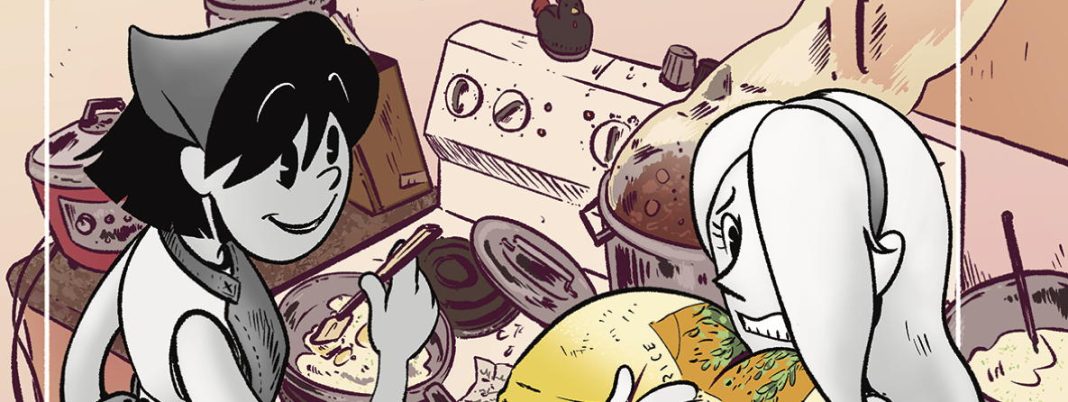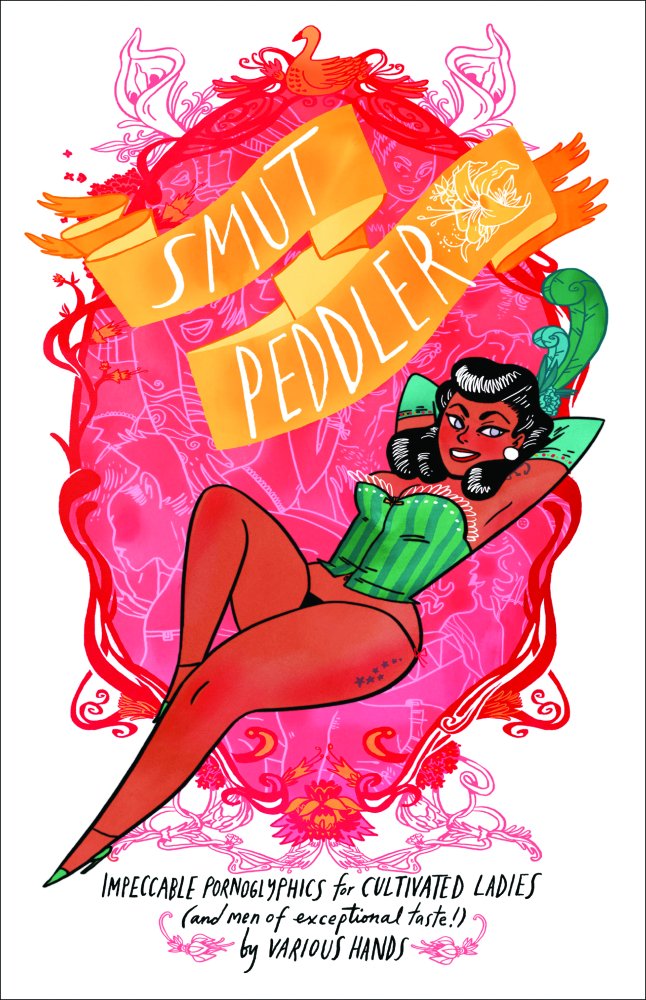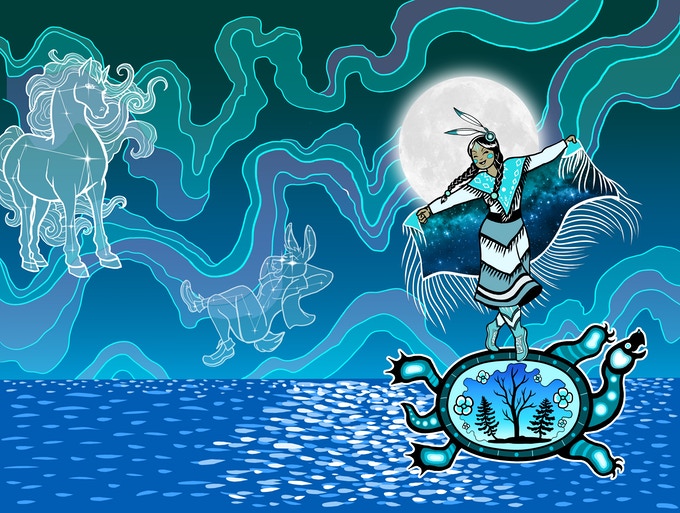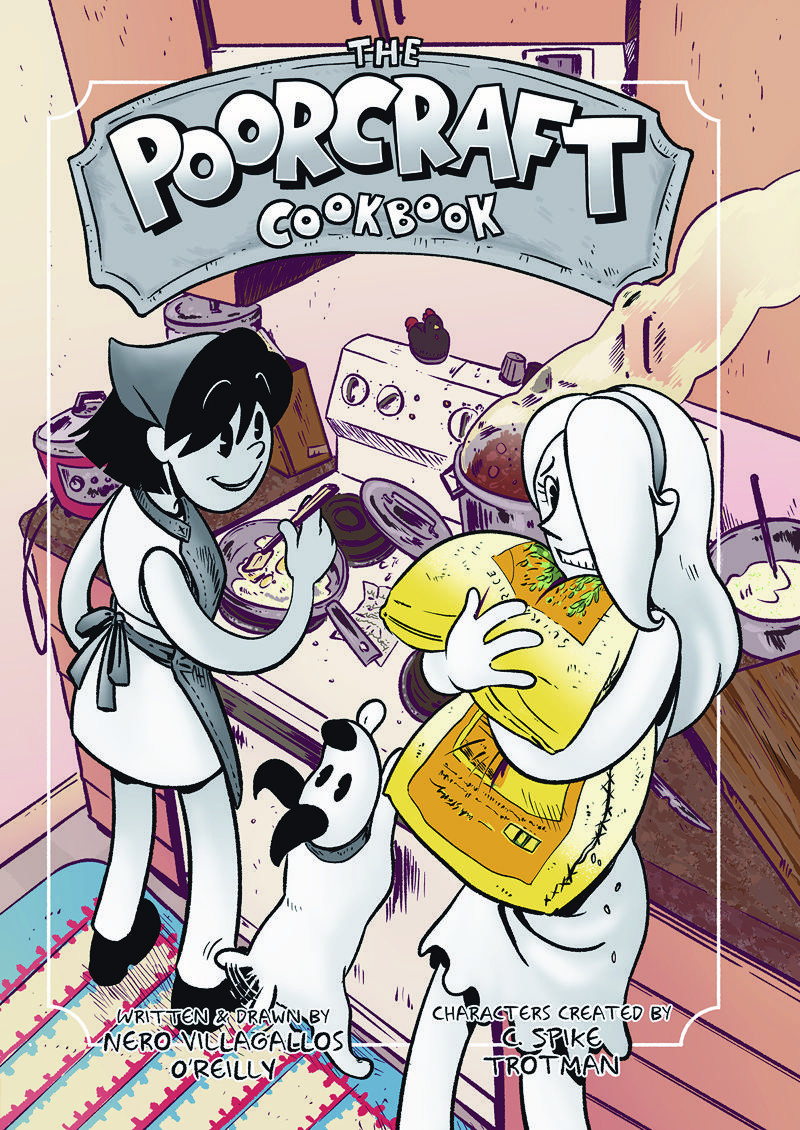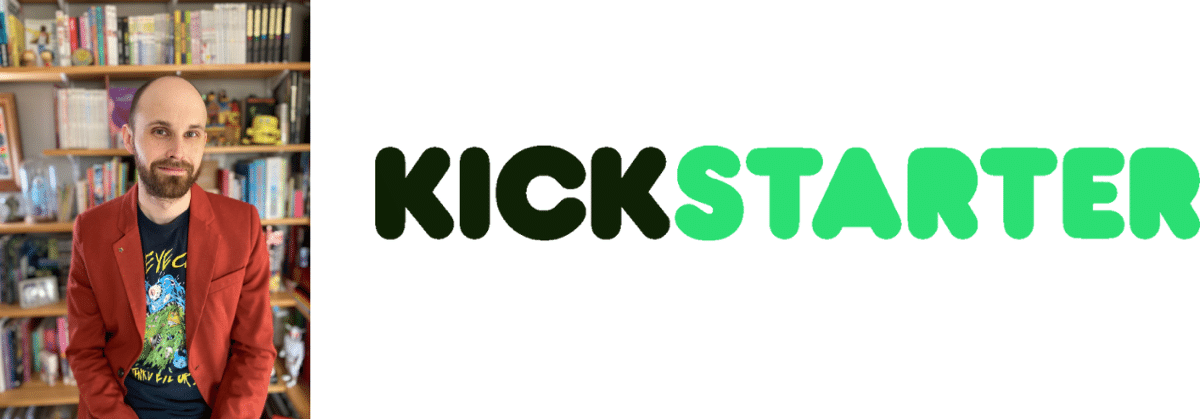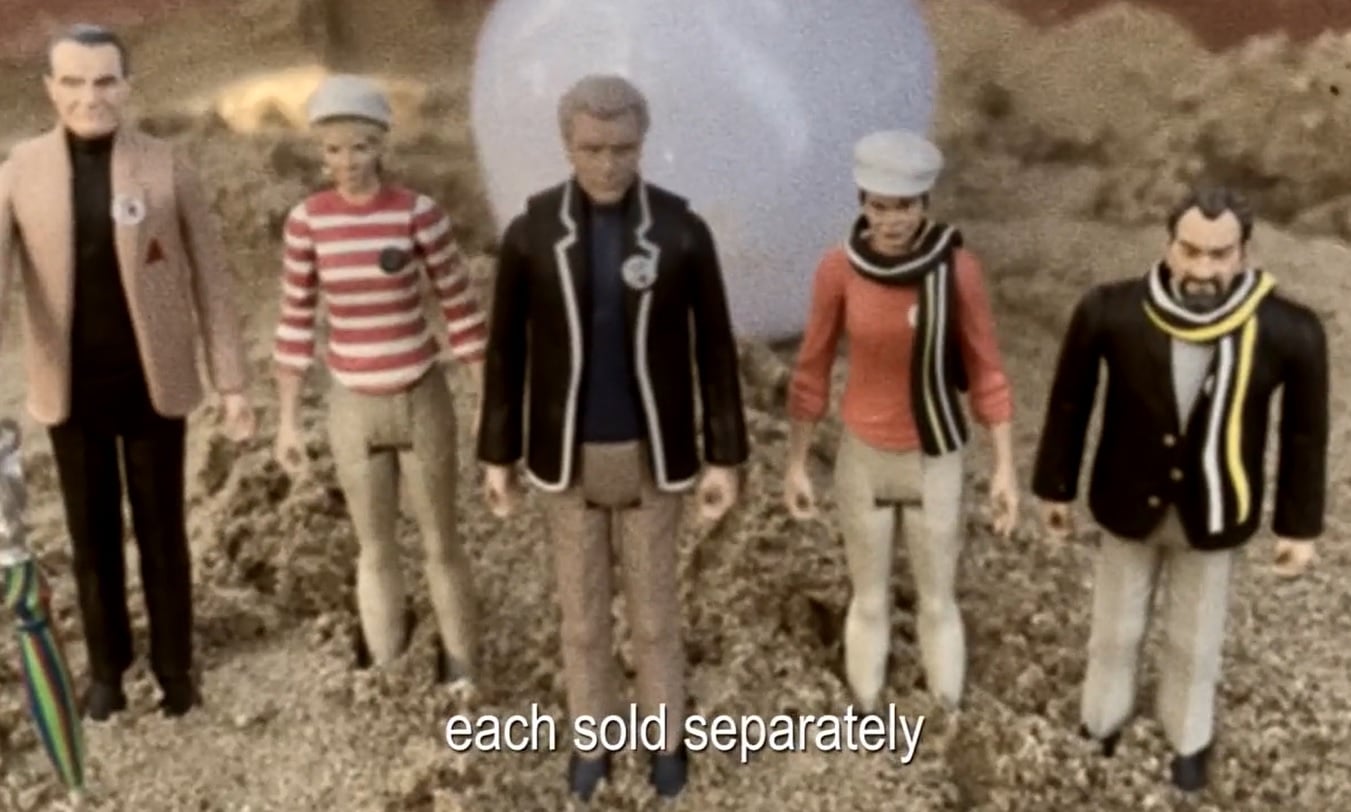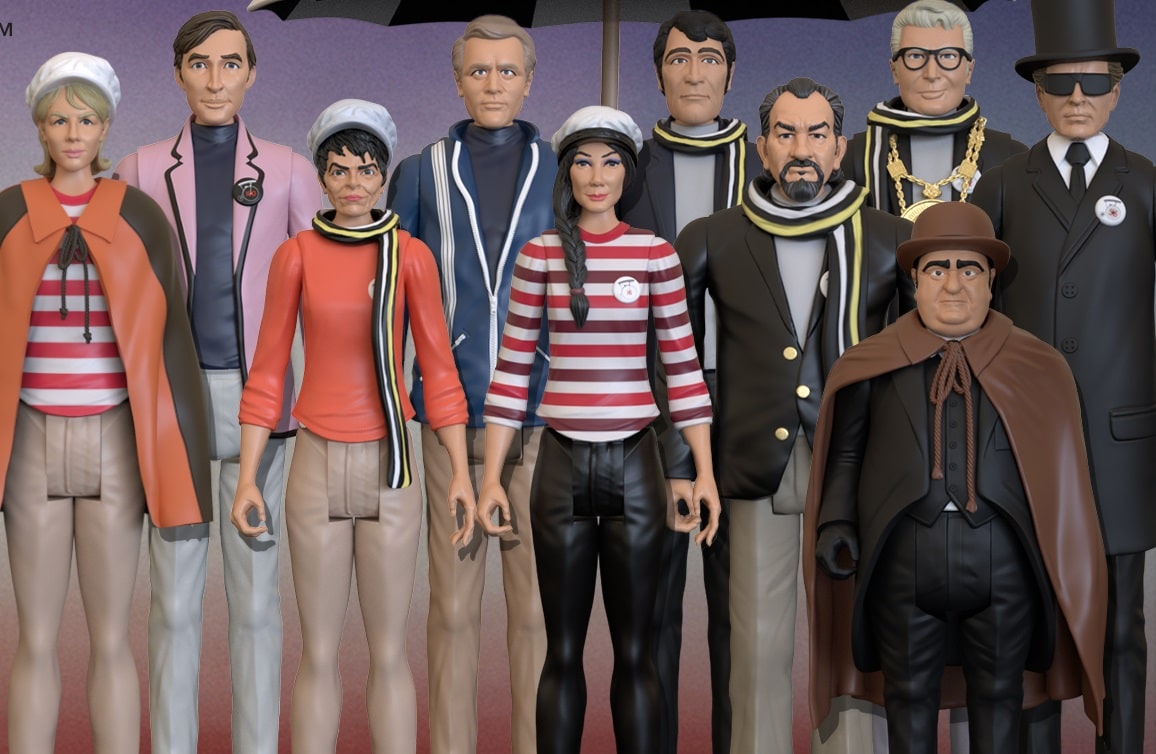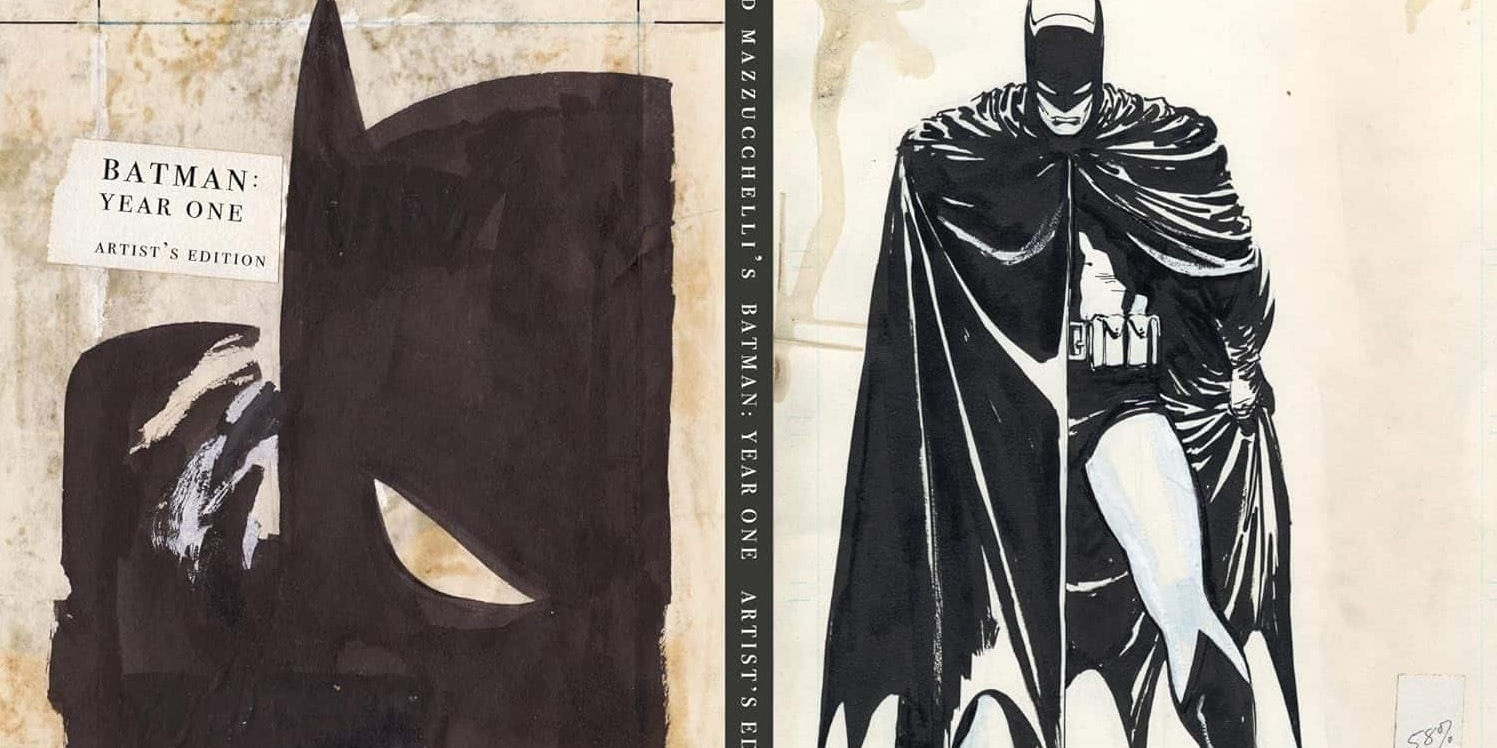Ever since Kickstarter announced plans to explore rebuilding their platform on the blockchain, the world of crowdfunding has been in tumult, as creators have left for new and existing alternatives. Or they just build their own crowdfunding platform, as Iron Circus publisher C. Spike Trotman did.
On February 7, Trotman launched her own indie crowdfunding campaign for The Poorcraft Cookbook, the third of a popular series of living on a budget. The launch was bumpy: the website was down for most of the first day (which we discuss at length in the interview below) but has since stabilized: as of today the campaign stands at more than $25,000, 400% funded. The second Poorcraft book, a travel book, made a total of $23,000.
This interview was conducted shortly after the campaign launched, and as noted since then the campaign has succeeded at a level comparable to Kickstarter. Kickstarter has also announced some moves in response to the creator pushback, including establishing an advisory board and answering questions directly for the first time about their blockchain plans.
This interview has been edited for clarity and length.
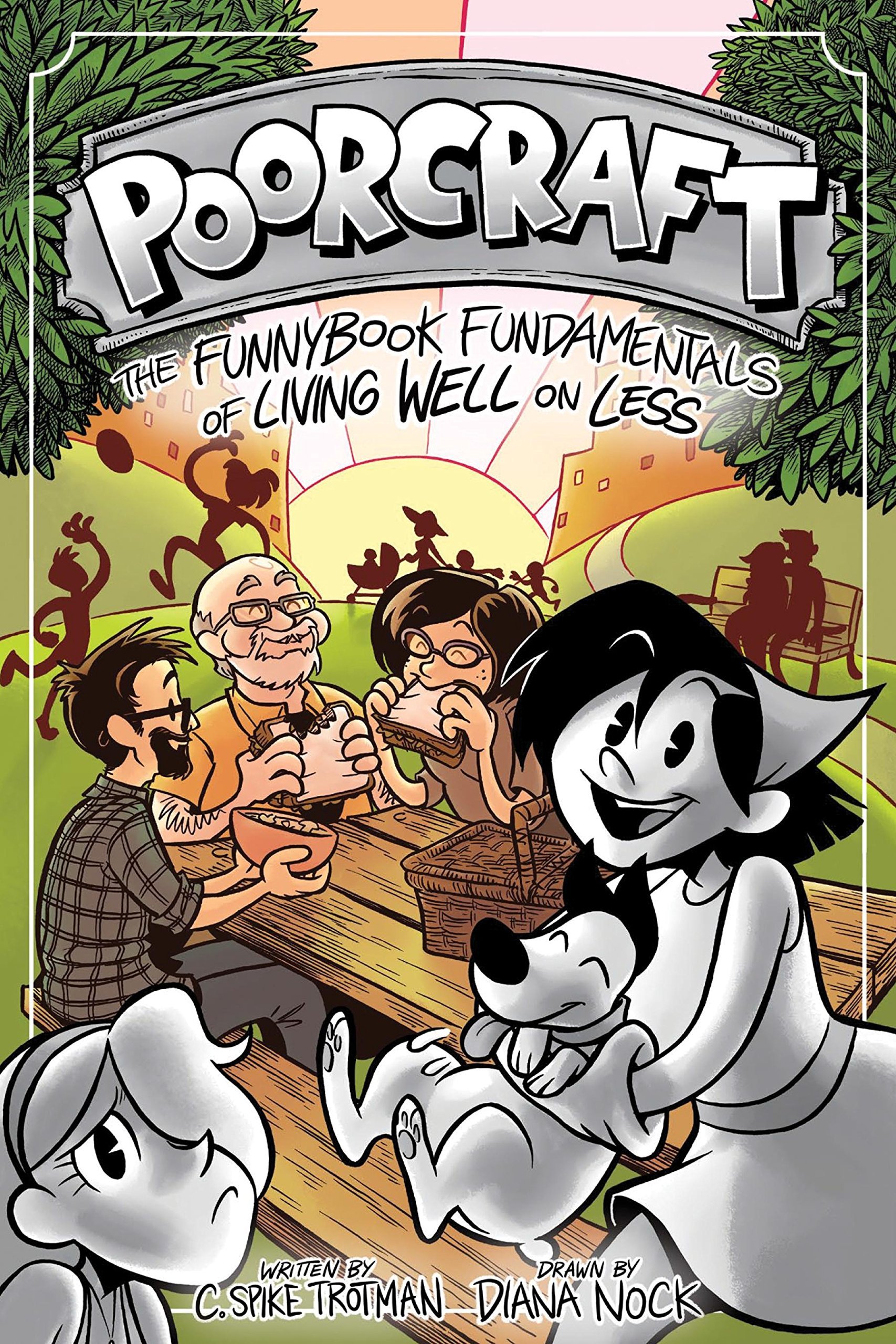
C. SPIKE TROTMAN: Poorcraft is the first book that we crowdfunded on Kickstarter, launching in 2009. So we are the definition of early adopters, back when Kickstarter was disreputable, instead of, you know, a literal linchpin of the comics community. It lacked class and made you look cheap, and all that other stuff. It was sort of a perfect storm situation, because that was a book I talked to friends about making for years. But I didn’t want to be that person who would try and hire people to illustrate something and say, “Oh, I promise it’ll make money, and I’ll pay you on the back end when it comes out.” Especially at that time comics had enough of those kinds of people.
And then, onstage at a comic con, I was told by a cartoonist named Gordon McAlpin about Kickstarter. I went home and looked it up and thought “Oh, my God, this is perfect.” My first communication with the staff at Kickstarter was to ask them to do something about some IP theft that was on the platform. After that, I thought, OK, these people seem pretty decent, “So how do I fund something on your platform?” People forget that when Kickstarter first launched, they were invite only, so I had to solicit an invite from another cartoonist, which I got. And I put Poorcraft on there. I think my funding goal was $6,000, just like the current Poorcraft Cookbook’s funding goal is $6,000. We made about $13,000. And that was the launch of something really big for me, for Kickstarter, and I like to think for the comics community in general. I wasn’t the very first comic on there, but my use of the platform kind of became – without sounding too self-aggrandizing – especially when I started doing the anthologies, [a model] where the more money the campaign made, we would make give higher page rates. That kind of set the gold standard for small press anthologies on Kickstarter. If people didn’t do it that way, they got a lot of great pointed questions. “Why aren’t you doing it the Iron Circus way?”
THE BEAT: And also, the subject matter of Poorcraft is kind of baked into comics, I’d say.
TROTMAN: I knew a lot about having no money back when that book got written. I always promoted it as the book I wish someone had handed me when I turned 18, it would have explained a lot.
THE BEAT: Yeah, there’s a lot of fantastic tips in there that even well, you know, everyone in comics should read Poorcraft.
TROTMAN: Everyone in comics should have some financial counseling, I think. A lot of stuff that’s in Poorcraft is based on observations, not just of other cartoonists, but people who just in general were never taught basic financial literacy. Because quite frankly, our society, if I can sound a little bit conspiracy, doesn’t have much to gain by teaching financial literacy. There’s so much money to be made by keeping people in debt.
THE BEAT: Well follow the money, as I always say. With the Poorcraft cookbook, how long had you had the idea for that and the second book?
TROTMAN: The second book was written by Ryan Estrada, Poorcraft: Wish You Were Here. It’s about travel on the cheap, which is something Ryan is very familiar with. With the Poorcraft cookbook, people have been requesting that one since the release of the original Poorcraft, which had a cooking section – people wished it was longer. It’s been a backburner idea for a couple of years, until we found someone who was willing to do it. I wrote the first Poorcraft, but there was just no time anymore. Believe it or not, running a publishing company is very time consuming. I’m already massively over committed. Fortunately, Nero knows his stuff. He was willing to do it and I think it turned out great.
THE BEAT: I want to talk a little bit more just about your adoption of Kickstarter. I am happy to aggrandize you – you really were one of the first publishers, if not the first publisher, to make crowdfunding part of your business model. What was your first anthology that used this model? What was some of the thinking behind it?
TROTMAN: I believe it was Smut Peddler in 2012, the one with the Emily Carroll cover. I was taking the reins over from Saucy Goose Press, the original publishers of the Smut Peddler series, which was a series of mini comics, small press all stars doing porn. [Eventually] I got permission to take over the title, and we launched with what at the time amounted to a wishlist of people that I wished I could get to draw smut. It made about $80,000 – and now the series is about to turn 10!
THE BEAT: When you started doing these anthology campaigns the business model of paying people more when the campaign made more seemed to strike a chord with supporters.
TROTMAN: Oh yeah. People love that. There was a time where the idea of asking for pay for work in a small press anthology, an off the beaten track kind of goofy weird anthology, was insane. [People got paid in] “copies” and you would sell those at the convention.
THE BEAT: It was exposure!
TROTMAN: Look who your name is next to was the big draw. And now I’m really pleased with the paychecks a lot of people are taking away from all of our anthology projects, especially ones like Smut Peddler, and our most recent one, The Woman in the Woods, which made around $300,000 – those are decent paydays, Marvel level paychecks. I’m really proud to be able to do that for people.
THE BEAT: So you’ve run 31 Kickstarters and made $2.5 million, so… I guess you can see where I’m heading with this. It was a pretty lucrative and successful model. I’m curious as to whether running your own crowdfunding campaigns had ever crossed your mind before Kickstarter went to the blockchain?
TROTMAN: It honestly wasn’t something I was seriously considering before the blockchain announcement. I would have happily given Kickstarter their 5% from now until the end of time, because to me, at the time, it was worth it. It was a concession that more than paid for itself – when you click through the Kickstarter dashboard, you see what percentage of funding is coming from Kickstarter’s efforts, which are things like featuring you in their newsletter, featuring you on the front page, featuring you in Kickstarters We Love, things like that.
And roughly a quarter to a third of my funding was coming from Kickstarter. So if I ran a $300,000 Kickstarter, $100,000 of that potentially, could be coming from Kickstarter itself. And in exchange for funneling $100,000 into my project, for a $300,000 project they will make $15,000. And sure, I will spend 15k To make $100,000 all day long.
THE BEAT: Right, that’s simple business economics, which leads me to wonder: how much of a leap of faith was this for you?
TROTMAN: I want to start off by saying, I know I have a ton of advantages. A lot of people might be considering staying with Kickstarter, despite the fact what Kickstarter is doing is against their principles. Like anybody reading this, please don’t come down on them. Please don’t give them a hard time. I am immensely privileged simply by having been one of the people who got in on the ground floor of the site. I have built up a mailing list of 50,000 people who have backed Iron Circus projects, I have 31 projects under my belt, people trust me when I say I’m going to deliver a book. They’ll follow me off site.
But if I were a 22 year old, making my first collection of my webcomic, and I’ve never done a crowdfunding project before, and I was a little shaky on how many fans I actually had…the numbers on Webtoons say one thing, but who knows how many of those people will actually buy something from you? It’s kind of a difficult decision, because Kickstarter has the infrastructure, and it has the discoverability. And you might grit your teeth and just launch the project anyway, because you can’t risk it not funding.
THE BEAT: Right. I know that everything you’ve done with Iron Circus has been not just about putting out books, but building a community. And I guess that’s what brings the crowd to crowdfunding, building a community. But I guess you felt this was viable for you simply because you have such a strong following?
TROTMAN: I am in a special place that I totally am aware a lot of other people aren’t in. I knew that if I did this, I would be taking a financial hit for sure. But at the same time, it wouldn’t be such a devastating hit that it would be a disservice to the people I publish.
THE BEAT: How have things gone since you hit the “start campaign” button? Because it was a little too successful at first.
TROTMAN: Oh yeah. I want to preface this, this is not about the quality of my IT team. The IT team did everything they could to prep us for this. They ran [tests] and everything was fine. They were assuring me the weekend before that they had asked my host, “Hey, just so you know, this is what’s going to happen. Are you ready for it?” And the host said “Yeah, you’ll be fine, looking at your traffic and we know what to expect.”
In retrospect, we probably should have told them that every time we had launched a Kickstarter before then, it was literally the most popular project on the site, at least for a couple of hours the day of launch. But we did everything we could to prepare, they did everything they could to prepare, and then we just got hammered. And every time the site came back up, it went back down, because we would get hammered. Because I would tweet something like, “Hey, the site’s back up,” but it would just happen again. People were literally awake 22 hours, trying to fix all the database errors and connection errors. And it’s still not perfect. But it’s working. We have hundreds of people who have put their faith in us. And we have a whole month to go, [since] I’d never crowdfunded independently like this before, we decided to give it more days.
THE BEAT: So it’s a test case, proof of concept.
TROTMAN: Yeah. And, oh God, it was the despair of Monday. It’s like, we were probably fools to sit there and think that it would go off flawlessly, but we didn’t think this site would be utterly destroyed.
THE BEAT: Oh yeah, you always find that out the hard way. I noticed that as of Wednesday [February 9] with all the troubles it was 83% on Wednesday. It’s 200% now, but as I’m sure you’re well aware, if this were on Kickstarter, it would have been at 200% in the first hour. Looking at the hit you’re going to take, why did you feel that this was a move you had to make for your own ethical concerns?
TROTMAN: The best analogy I have for this is imagine you’re a passenger in a car. And your friend has been driving, and they’ve been driving the past 10 miles. And they’re taking you exactly where you both agreed you want to go, and everything is great and fine, you’ve got no problems whatsoever. And then suddenly, they veer off onto a dark, dark road with no signs. And your first reaction is, where are we going? And they just look at you and they go, it’s fine. Don’t worry. And you go, No, I actually do need to know where we’re going and why you’ve changed course. And the reply is, it’s fine. And then you say, for the third time, I am getting out of this car if you don’t tell me why you took that turn into the deep dark, unexplored woods. You haven’t given me a reason? I need a reason. And there you go. Wouldn’t you get out of the car? This is me getting out of the car.
I think a lot of people sort of fall into this level of bias, where they believe what they see on the internet is all that has happened. I still have friends at Kickstarter, people that know we are down for life working in those offices. And I have arranged meetings, multiple email chains with them. And I have asked them repeatedly, what is this? What’s happening? Why is this the new course? And I have yet to get over the course of a month of these questions an answer I am happy with. And I cannot be comfortable in that environment. If you won’t tell me why you’ve changed course, I need to get out of the car.

THE BEAT: That’s a fantastic analogy. I have sort of a rough working technical knowledge of the blockchain, but to me it’s still like…I like pancakes so I’m building a crowdfunding platform on pancakes. Do you have any idea what that even means to be running on a blockchain platform and why it would be useful?
TROTMAN: I’m not going to pretend I’m an expert. I only know what I’ve read. And what I’ve watched, it’s a decentralized distributed database. And what that means is there is no one particular place holding all of the information for the site, there’s not a box in a room somewhere, it’s distributed over multiple floors. And in theory, that is not a thing that is inherently evil. But I am not thrilled with the application of blockchain as it is currently existing. Blockchain is a backdoor to fraud, and carpetbagging, and cryptocurrency, and while it can be implemented in a beneficial way in theory, in practice, I’m not thrilled with what I’m seeing.
THE BEAT: It’s a longer conversation, but in some ways, this whole decentralized notion behind blockchain is really a symbol for the entire discourse where every voice ends up with equal weight, whether it’s ethical or unethical.
TROTMAN: Putting on my little tinfoil beanie again, I don’t believe an actual person named Satoshi Nakamoto is real. I think it’s probably a bunch of people pretending to be somebody named Satoshi Nakamoto. But when Bitcoin was announced, it was announced with oh, it’s going to be this decentralized currency, no more paying bank fees, no more being tied to a government. If you work in America, and you have family back in Venezuela, you can send them money via Bitcoin without paying wire transfer fees, and without anybody taking a bite, and it’s completely independent of any standard, and it’s the perfect future of money. Again, that’s the theory but in practice, it is a destabilizing and insane nightmare. It’s worth remembering that regulations are written in blood. And if there are rules about something, especially in the financial service sector, the public safety sector, they probably exist because something terrible has happened. And we learned.
THE BEAT: Oh yeah, like the FDIC. Anyway, now that the technical side of your campaign has stabilized, finger crossed, is this how you’re going to do your crowdfunded projects from here on?
TROTMAN: Yes. And I can say right now, I’m incredibly happy that all the bumps and all the hiccups happened on a project that belongs to me, IP wise, because I would never want to inflict this on a creator that put their trust in me. But I have no interest in being a service provider. This will be for Iron Circus books only. I’m going to be doing this for other creators and when it’s their turn, this needs to hum along smoothly.
THE BEAT: So you had an excellent shakedown cruise. Now, I just love it when you put on your tinfoil beanie, your prognosticator hat. It does look like crowdfunding platforms are going to become a lot more decentralized, with TopatoGO, Zoop, others coming along. We’re headed for a future with a lot more platforms for this.
TROTMAN: For sure. Without naming names, I have had multiple platforms that don’t currently do crowdfunding in my inbox asking me “Hey, hey, we hear you’re leaving Kickstarter. What’s up?”
Crowdfunding is going to become very decentralized. Itch.io and Ko-Fi have made plays for attention. TopatoGO’s founders originally had a venture called Make That Thing. And that has roared back to life in the current environment. Jeffrey Rowland is funding just his own test case, which is a little potato. And that seems to be going fine.
THE BEAT: Yeah, they’re obviously going to ramp up their own platform. So in other words, this is just going to end up being more ways to do more things.
TROTMAN: And it’s always good for there to be more ways to do things, in my opinion. I think there are going to be some really painful moments, growing pains, for people who are going to agonize over which platform to use. And I sympathize with that. But ultimately, I think this is a good thing. I don’t want any one platform having all the power. Kickstarter never had a monopoly, there’s always been smaller competitors. But I think those competitors are going to grow. And I think that’s good, it could only mean better terms. People can compare what percentage they take and what their pages look like, and how good their customer service is and that’s great. It’s a great environment for creators who are looking to pick the best platform.


